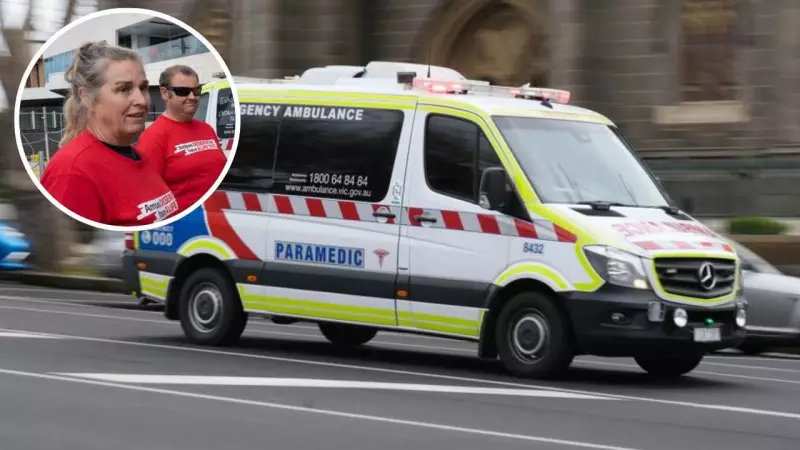
Geelong's frontline paramedics are reaching breaking point as a deeply flawed emergency dispatch system continues to send them to trivial cases like paper cuts and minor scratches while life-threatening emergencies wait desperately for assistance.
Crisis in Emergency Response
The alarming situation has reached critical levels, with paramedics revealing they're regularly dispatched to calls that don't require emergency medical attention. Ambulance Victoria's current system automatically sends paramedics to every Triple Zero call classified as 'urgent', regardless of the actual medical necessity.
This flawed approach means that highly trained emergency medical professionals are wasting precious time and resources on cases that could be handled by GPs or pharmacists. Meanwhile, genuine emergencies face dangerous delays in response times.
The Human Toll on Paramedics
The constant strain is taking a severe emotional and physical toll on Geelong's paramedic workforce. Many are experiencing burnout and moral distress knowing that while they're attending to minor injuries, other community members with critical conditions are waiting without help.
Ambulance Victoria figures confirm the severity of the problem, showing that paramedics are regularly tied up with low-acuity cases that don't require emergency intervention. This systematic failure not only affects patient outcomes but also contributes to the growing mental health crisis among emergency service workers.
The situation has become so dire that paramedics themselves are speaking out about the need for systemic reform. They report feeling frustrated and demoralized when they know their skills could be saving lives elsewhere in the community.
Systemic Failures and Solutions
The core issue lies in the dispatch protocol that fails to properly triage calls based on actual medical need. Unlike systems in other states that use nurse-led triage to filter non-emergency calls, Victoria's approach sends paramedics to every urgent-classified call without adequate assessment.
Healthcare experts and paramedic representatives are calling for immediate reforms, including:
- Implementation of proper medical triage for emergency calls
- Increased funding for alternative care pathways
- Better community education about appropriate emergency service use
- Enhanced support systems for paramedics dealing with burnout
The current situation represents a critical failure in emergency healthcare delivery that puts both patients and paramedics at risk. Without urgent intervention, Geelong faces the real possibility of losing experienced paramedics to burnout and stress-related conditions.
Community leaders and healthcare professionals agree that solving this crisis requires both immediate action and long-term strategic planning to ensure Geelong residents receive the emergency care they deserve while protecting the wellbeing of those who provide it.





